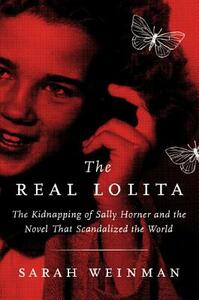Take a photo of a barcode or cover
471 reviews for:
The Real Lolita: The Kidnapping of Sally Horner and the Novel That Scandalized the World
Sarah Weinman
471 reviews for:
The Real Lolita: The Kidnapping of Sally Horner and the Novel That Scandalized the World
Sarah Weinman
challenging
dark
emotional
informative
sad
medium-paced
A brilliant example of true crime, and how art is nearly always borrowed from somewhere/one else, in the best way. Lolita is one of my favourite books, and I feel like this is a genuine and fascinating addition to its history.
I recently reread Lolita and Weinman offers with convincing arguments an entirely new way of looking at the novel, especially as I knew very little about Nabokov before The Real Lolita. Now, I want to read the controversial and misunderstood book all over again.
The Real Lolita is first and foremost a biography of Sally Horner, who Weinman presents with honor and obvious dedication to truth. Knowing nothing of Horner other than her name before reading this book, she’s now a part of my life because she has to be if Lolita already was. Horner’s life is one that needed to be written about in this way and this book has convinced me that this would be true even if she hadn’t provided inspiration for such a famous character.
The Real Lolita is first and foremost a biography of Sally Horner, who Weinman presents with honor and obvious dedication to truth. Knowing nothing of Horner other than her name before reading this book, she’s now a part of my life because she has to be if Lolita already was. Horner’s life is one that needed to be written about in this way and this book has convinced me that this would be true even if she hadn’t provided inspiration for such a famous character.
dark
informative
medium-paced
informative
medium-paced
After reading Lolita I decided to give this book a try. I was curious about Sally Horner’s case after listening to Lolita podcast. This was a very well thought out true crime novel with great writing. I kept wanting to find out more and it was hard to put down!
Don't know the right words to describe my experience. I was riveted to the chapters that focused on Sally and her family and was interested in popular reaction to the book and subsequent movies. The chapters about the Vladimir Nabokov's process while writing/not writing the book and if he would admit/not admit that Sally was the direct influence for it were less up my alley.
If someone has decided that an action is morally wrong, you’re not going to change their mind. This makes reading The Real Lolita by Sarah Weinman particularly frustrating for anyone who enjoys Nabokov’s Lolita or has ever attempted to write a piece of fiction themselves. The book reveals the true-crime basis for Lolita—the kidnapping and rape of Sally Horner whose rapist posed as her father for two years. Weinman argues that Nabokov shouldn’t have been inspired, was wrong to take tragedy and turn it into literature. She blames Nabokov for poor readers reading his Lolita as a tease instead of a victim and claims “abuse…should not be subsumed by dazzling prose; no matter how brilliant” while capitalizing on the same crime with infinitely less style or grace. Weinman handily proves the point that Horner’s tragedy is the source material, the rest is just kicking a man when he’s dead.
challenging
emotional
informative
reflective
sad
medium-paced





